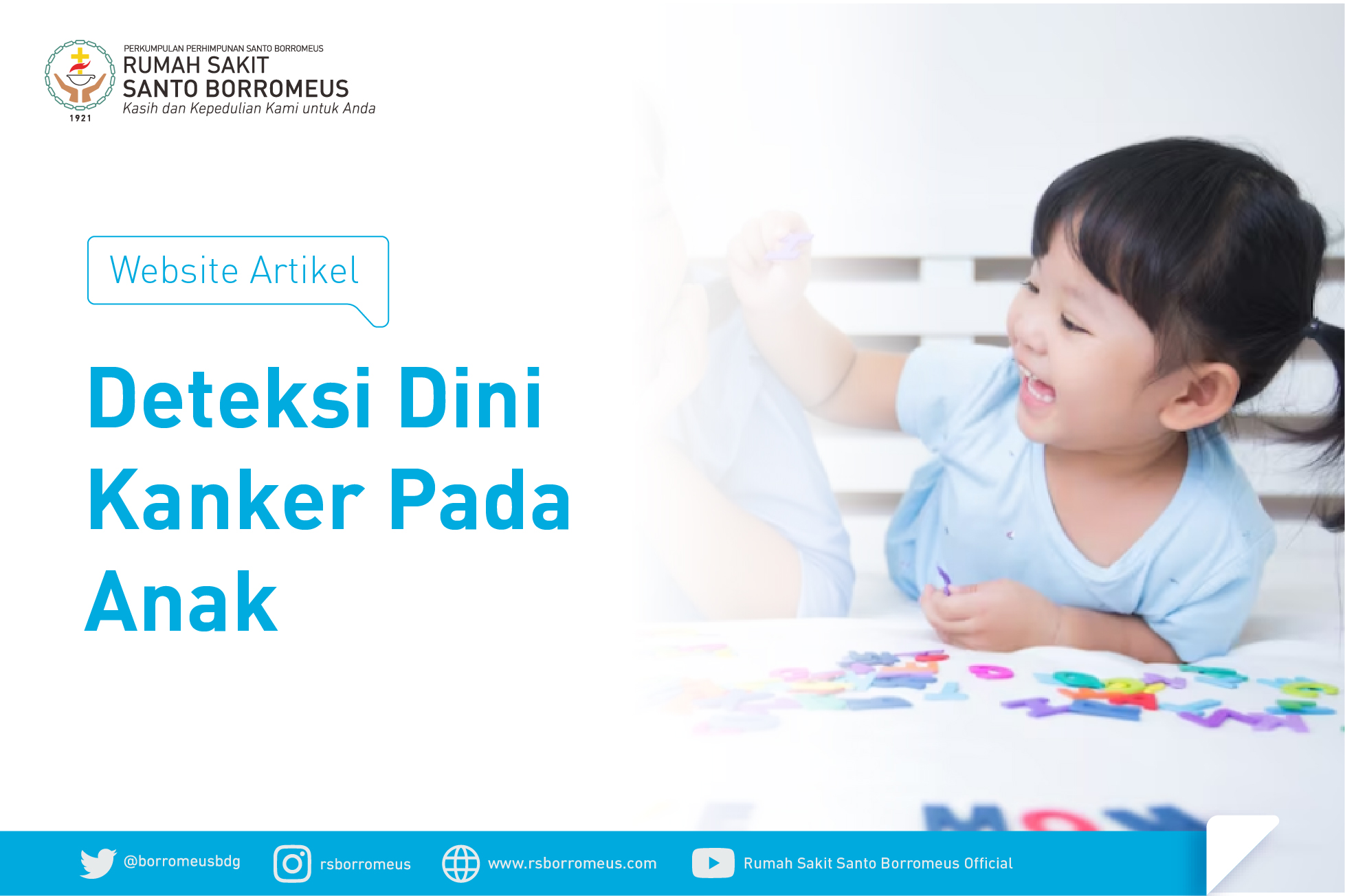
Early Detection of Childhood Cancer
Cancer is the uncontrolledgrowthof cells or tissue.
Signs and symptoms of childhood cancer
- Recurrent fever for no apparent reason
- Sudden bleeding (nosebleeds, gum bleeding, easy bruising)
- Lump or swelling in the neck/abdomen/ groin
- Weight loss for no reason
- Frequent headache or vomiting
Why can cancer affect children?
- Generally occurs due to gene mutations or DNA changes. Can occur from birth or even in the womb.
- Genetic factors
- Environmental factors such as chemical and radiation exposure.
Types of cancer that often affect children
Leukemia
Leukemia is a malignant disease of blood cells that originate from the bone marrow.
Symptoms: Pallor, fever without apparent cause, decreased appetite, enlarged liver and spleen, enlarged lymph nodes, spontaneous bleeding, bone pain.
Retinoblastoma
Retinoblastoma is a primary malignant tumor of the eye that is often seen in children less than 5 years old.
Symptoms: White eye bead, squint, enlarged eyeball, blurred vision.
Osteosarcoma
Osteosarcoma or bone cancer is a malignancy that arises in the bones.
Symptoms: Bone pain at night or after exertion; swelling, redness and warmth in the area of bone pain; fractures after routine activity; limited bone movement; persistent pain in the back; fever, fatigue, weight loss and pallor.
Malignant lymphoma
Malignant lymphoma is a primary malignancy of lymph tissue that is solid in nature.
Symptoms to look out for include swollen lymph nodes in the neck, armpits, groin, and without pain; shortness of breath, obstruction of the digestive tract, fever, night sweats, weakness, lethargy, decreased appetite, weight loss.
Neuroblastoma
Neuroblastoma is an embryonal tumor of the sympathetic nervous system that originates from the neural tissue.
Symptoms: Bleeding around the eyes and bulging eyes; bone pain; abdominal fullness and diarrhea; decreased eyelid on one side of the eye, pupil contraction, dry eyes, swelling in the neck; pain, paralysis, impaired bladder and bowel function.
What checks need to be done?
- It is best to consult a pediatrician.
- Carrying out examinations depends on the type of cancer, with examinations such as:
– Blood test
– X-ray
– Biopsy
– CT scan
– MRI
– Ultrasound
How to prevent childhood cancer
Do C.E.R.D.I.K.
- Regular health checks
- Get rid of cigarette smoke by avoiding exposure to cigarette smoke
- Physical activity
- Healthy and balanced diet
- Get enough rest
- Manage stress



